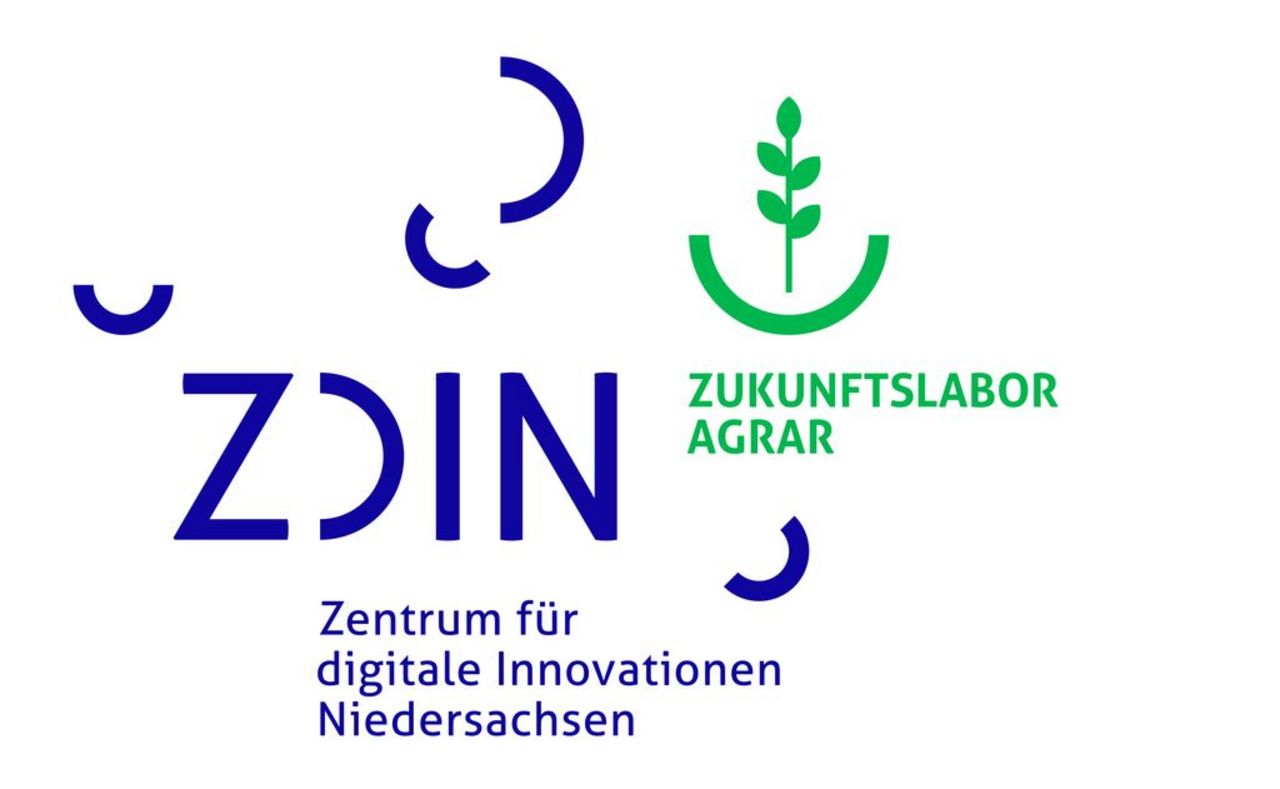Project
The Call for Future Laboratory: Agriculture (ZLA)

Zukunftslabor Agrar
The central aspects of the call for future laboratory are the questions of data management and interpretation, automation and autonomization of agricultural technologies and the legal framework in agricultural and food industry. Consequently the impact of digitization on the sustainability of agriculture will be analyzed.
Background and Objective
The scientific-technical work is grouped around three sub-projects which address three "central aspects" of the call for future laboratories and interpret them in the sense of "Protected Transparency" and "Sustainability Effects":
- Analyses of data collection and data flows in agriculture (Management: Prof. Dr. Jantje Halberstadt, University of Vechta)
- Practice-oriented automation of agricultural production process (Management: Prof. Dr. Arno Ruckelshausen, University of Applied Sciences Osnabrueck)
- Sustainability of digitisation in the agricultural sector of Lower Saxony (Management: Dr. Verena Otter, Georg-August-University of Goettingen)
Target Group
For agriculture, a comprehensive treatment of digitization must deal more strongly than in other domains with the inevitable technical questions in the context of requirements and interests of a wide and heterogeneous group of stakeholders: farmers, service providers, machine manufacturers, food industry - but also a large number of citizens in their potentially conflicting roles with regard to the valuation of agriculture, for example as consumers, residents of rural areas, taxpayers, employees in agricultural engineering or in food processing entities.
Economic agents, associations, media, politics and the public are currently expressing a massive need for information and advice on digitization. The digitization of agriculture plays a special role because of the high level of public attention paid to agriculture. In addition to general public relations work, the ZLA makes targeted offers of independent advice on the topic for the groups mentioned.
Our Research Questions
Digitisation of agriculture (DdL), like digitisation in every field of application, requires technical permeability of the value creaton networks concerned for the data generated. The actors in every field of application also have an interest in maintaining their data sovereignty. In agriculture, the existing approaches to DdL already articulate the conflict between data transparency in the value creation network and the demand for data sovereignty of the actors. Consequently, in practice DdL will only work in the form of Protected Transparency, i.e. in a form that enforces data transparency and protection of data sovereignty both technically and legally. The realisation of protected transparency as a practical prerequisite for DdL is one of the central questions of the ZLA. The practical implementation of the DdL is also crucially dependent on its impact on the sustainability of agriculture in a comprehensive sense (economic, ecological, social): only to the extent that such sustainability effects occur does the DdL make practical sense. Consequently, understanding these sustainability effects of the DdL and their prerequisites, documenting them practically if necessary and quantifying them as far as possible is the other central question of the ZLA.
Links and Downloads
Thünen-Contact

Involved Thünen-Partners
Involved external Thünen-Partners
-
Technische Universität Braunschweig
(Braunschweig, Deutschland) -
Universität Osnabrück
(Osnabrück, Deutschland) - Julius Kühn-Institut - Bundesforschungsinstitut für Kulturpflanzen (JKI)
(Quedlinburg, Braunschweig, Groß Lüsewitz, Kleinmachnow, Deutschland) - Deutsches Forschungszentrum für künstliche Intelligenz (DFKI), Robotics Innovation Center
(Osnabrück, Deutschland) -
Universität Vechta
(Vechta, Deutschland) - Georg-August-Universität Göttingen
(Göttingen, Deutschland) - Hochschule Osnabrück
(Osnabrück, Deutschland)
Funding Body
-
Bundesland Niedersachsen
(national, öffentlich)
Duration
10.2019 - 11.2024
More Information
Project status:
ongoing
Publications on the project
- 0
Schwab A-K, Halberstadt J, Besieda A, Kraft M, Ortland A (2023) Organizational aspects of digitalization in the context of agriculture: Exemplary results from analyzing data flows in German dairy farming. Procedia Comput Sci 219:1006-1011, DOI:10.1016/j.procs.2023.01.378
- 1
Halberstadt J, Ortland A, Schwab A-K, Besieda A, Kraft M (2022) Digitalisierung und Innovation in der Landwirtschaft : Potentiale für innovative Lösungen auf Basis von Datenflüssen entlang von agrarischen Wertschöpfungsketten. In: Demmler D, Krupka D, Federrath H (eds) Informatik 2022 : Informatik in den Naturwissenschaften ; 26.-30. September 2022, Hamburg. Bonn: Gesellschaft für Informatik, pp 807-821, DOI:10.18420/inf2022_68

![[Translate to English:] [Translate to English:]](/media/_processed_/3/6/csm_Hintergrund-Ausschnitt1_9daaef6b89.jpeg)
![[Translate to English:] [Translate to English:]](/media/_processed_/3/6/csm_Hintergrund-Ausschnitt1_0bd7111163.jpeg)
![[Translate to English:] Logo des Bundesministerium für Ernährung und Landwirtschaft](/media/allgemein/logos/BMEL_Logo.svg)